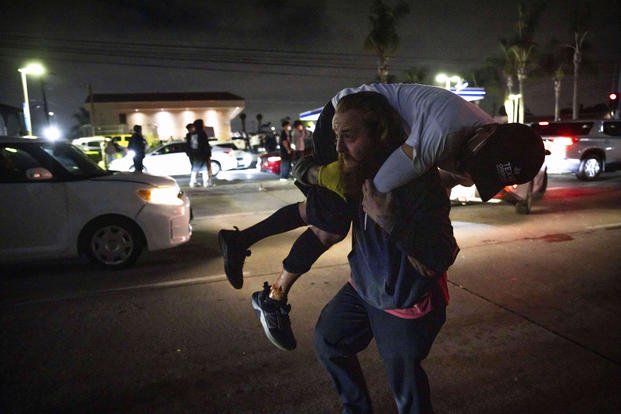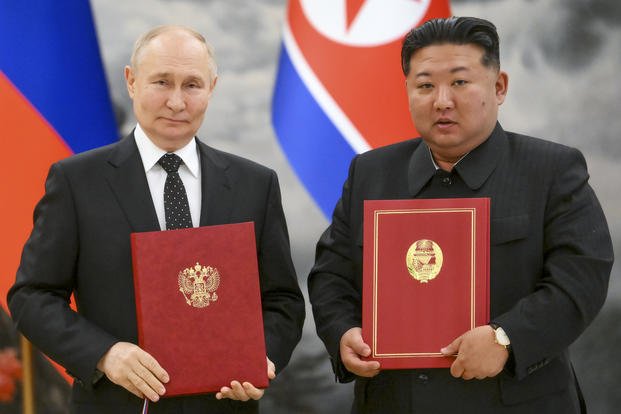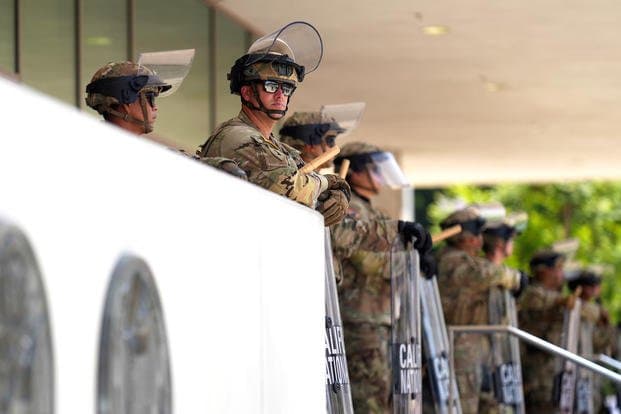As the nation celebrated July 4th, the military"s role in American society reached a critical juncture. An alarming trend emerged—Marines and National Guard units have been dispatched to Los Angeles to confront peaceful protesters. This unprecedented deployment raises profound questions about the militarization of civil society and the constitutional principles that have long governed military engagement with civilians.
Service Members Question Orders
Kim, an anonymous Air Force veteran, represents a growing chorus of service members grappling with the implications of unlawful orders. Enlisting at 18 to escape a life of instability, her commitment to the military was driven by survival rather than patriotism. Yet, as she read the Heritage Foundation"s Project 2025, her faith in the institution began to waver. "I didn’t join to be a pawn in a political game," she confided. The specter of unlawful orders looms large, especially as the military has been deployed against its own citizens.
About Face Launches Right to Refuse Campaign
In response to these troubling developments, the veterans’ group About Face has initiated a "Right to Refuse" campaign. This initiative advocates for robust legal protections for service members who refuse to comply with orders deemed unlawful or immoral. Brittany Ramos DeBarros, the organizing director of About Face, highlights the urgency of this campaign, noting that many service members feel isolated in their dissent. "People are starting to talk to each other about their concerns, and that’s a significant shift," she stated. The need for solidarity and support in the military community has never been more pressing.

National Guard Troops Arrive in Los Angeles on Trump"s Orders ...
Legal Ambiguities Compound Risks
Legal experts, including Laura Dickinson, a law professor at George Washington University, have voiced serious concerns regarding the current deployment practices. The deployment of military forces for domestic law enforcement tasks breaks long-standing norms of civilian control over the military. This shift not only undermines public trust but also places service members in untenable positions. As reported by research on military use against civilians, the constitutional principles governing such actions are being tested like never before.
Fear of the Insurrection Act
Amidst the chaos, concerns mount that Trump might invoke the Insurrection Act to further militarize domestic law enforcement. This act allows the president to deploy military forces against civil unrest, a scenario that many argue could lead to severe consequences for civil liberties. As DeBarros poignantly notes, the Marine Corps is ill-equipped for de-escalation; their training for warfare starkly contrasts with the nuanced demands of civil order. The implications of using military personnel trained for combat to manage civilian protests could lead to tragic outcomes.

Putin Thanks North Korea for Troop Deployment and Promises ...
Moral Injury and the Dilemma of Obedience
The moral injury inflicted on service members compelled to carry out potentially unlawful orders cannot be overstated. Kim’s struggle reflects a broader conflict within the ranks: should one resign in protest or remain within the system, hoping to effect change from within? The risks of either choice are grave. Service members face court-martial and loss of benefits for disobedience, yet following unlawful orders could lead to lifelong psychological scars. This dilemma highlights the urgent need for clear legal frameworks that protect the rights of service members while honoring their oath to defend the Constitution.


![[Video] France opens applications for 10-month national service for youth](/_next/image?url=%2Fapi%2Fimage%2Fthumbnails%2Fthumbnail-1768220506872-i17id8-thumbnail.jpg&w=3840&q=75)




![[Video] Gunfire between Iraqi security forces and Sadr militias in Baghdad](/_next/image?url=%2Fapi%2Fimage%2Fthumbnails%2Fthumbnail-1768343508874-4redb-thumbnail.jpg&w=3840&q=75)
